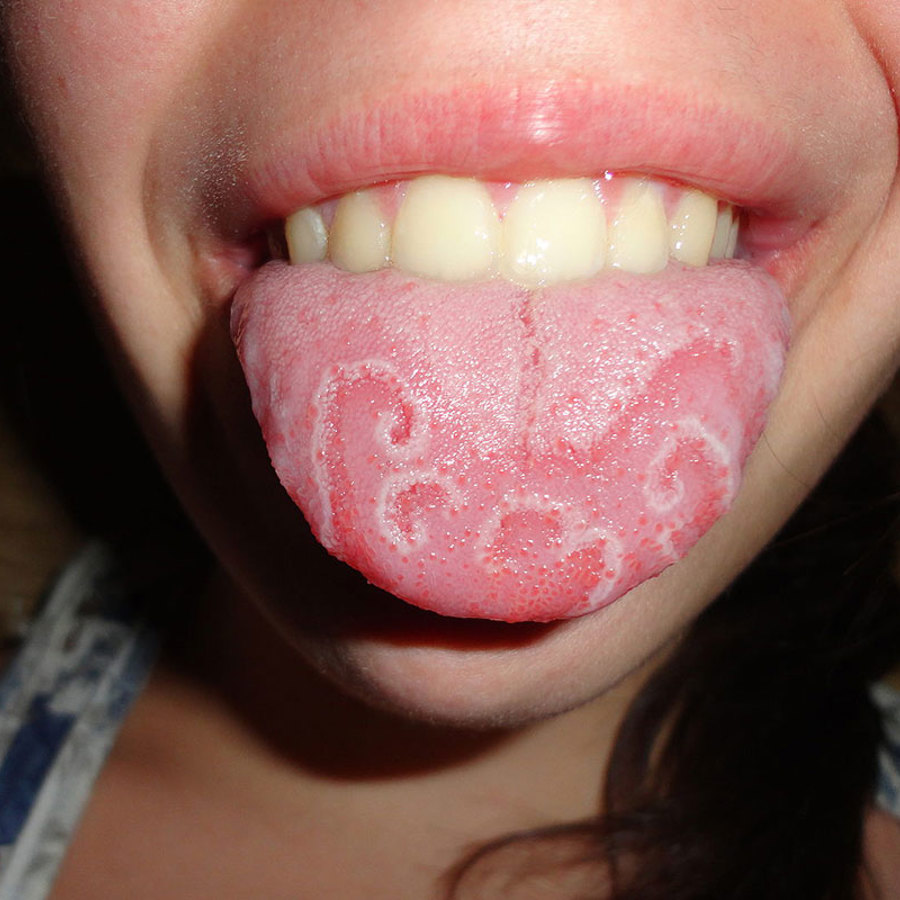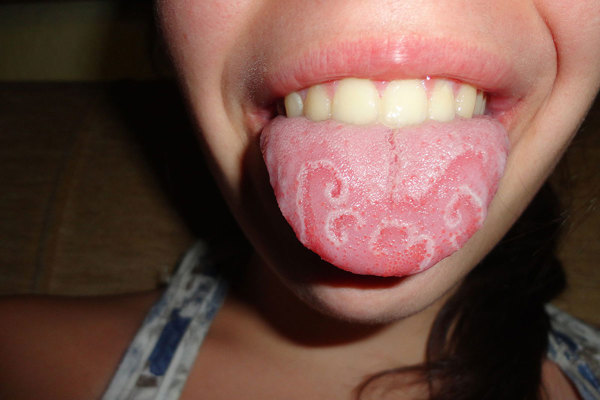
What is geographic tongue and is it genetic?
March 11, 2005

- Related Topic:
- Complex traits
A graduate student from New York asks:
“All I know about geographic tongue is the name (my doctor told me) and that my Mom has it, too. Is this genetic and what exactly IS geographic tongue and why do some people have it (sometimes!)?”
I had never heard of geographic tongue until I read your question. And yet, 3 out of 100 Americans have it.
Geographic tongue, as you know, is relatively harmless. This condition causes your tongue to have patches that are reddish in the middle and whitish on the edge. Sometimes spicy foods can irritate the patches, but usually there aren't many symptoms.
Where geographic tongue comes from and what causes it are still a mystery. A few studies have been done though.
It is known that women tend to get it about twice as often as men. One study also suggested that hormones might make it worse. In this study, women on birth control pills had their worst symptoms on day 17 of their menstrual cycle.1
Also, people who are extra sensitive to the environment tend to get geographic tongue as well. These are people who already have conditions like asthma, allergies or eczema.
A number of studies have noted that geographic tongue tends to run in families. But there isn’t any easy pattern of inheritance like there is with other traits, like eye color.
Instead, its pattern is closer to something like autism, height, or skin color. All of these traits have lots of genes involved. When lots of genes are involved, figuring out who will get a certain trait is pretty hard to do.

Take autism, for example. Autism is a learning disability that is at least partly caused by genes. Most of these genes are unknown and there is no obvious trait associated with having any single one of them in particular.
This makes it hard to figure the chances a couple will have an autistic child. The only clues tend to be if relatives already are autistic.
Why is that? Think of it this way. Let’s say that there are 3 genes involved with getting geographic tongue (there are probably many more). So when someone has all 3 genes, they are sure to have geographic tongue.
If this were true, we’d be able to better predict the chances of having a child with geographic tongue. But none of the geographic tongue genes have any obvious symptom or trait associated with them. So how do you know if you have them?
One way would be DNA testing. But for that you need to know what genes are involved, which we don’t.
So what doctors are forced to do is play a statistics game. If someone in your family has geographic tongue, then the chances are increased that you’ll get it too. They then look at lots of families and see who has it and who doesn’t.
While this has been done for autism, no one has yet done an extensive study of geographic tongue inheritance.
So as you can see, there are lots of clues about what’s going on with geographic tongue but no answers. Something to do with hormones, possibly an overactive immune system, and some unknown genes are involved.
Hopefully someone will be able to one day do the definitive study that connects all of the dots and figures out what's going on. Until then, be happy that it is pretty common, usually not that uncomfortable, and not life threatening.

Author: Dr. Barry Star
Barry served as The Tech Geneticist from 2002-2018. He founded Ask-a-Geneticist, answered thousands of questions submitted by people from all around the world, and oversaw and edited all articles published during his tenure. AAG is part of the Stanford at The Tech program, which brings Stanford scientists to The Tech to answer questions for this site, as well as to run science activities with visitors at The Tech Interactive in downtown San Jose.
 Skip Navigation
Skip Navigation
